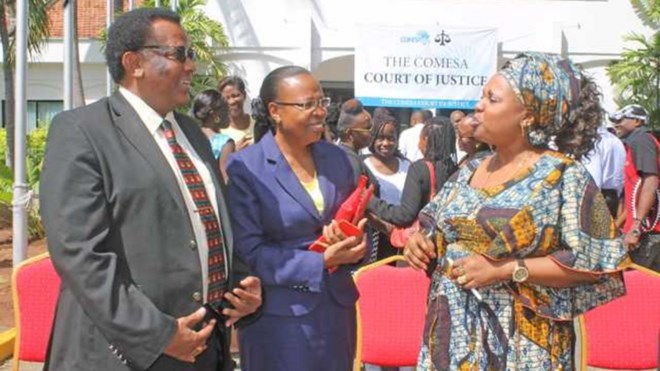
Sunday July 26, 2020

Embassies cannot be sued on behalf of their respective governments, the High Court has ruled in an unprecedented decision by Justice Mary Kasango.
Diplomatic missions are protected under Article 22 of the Vienna Convention.
“Such premises of a diplomatic mission are inviolable and must not be entered by the host county except with permission from the head of the mission,” said the judge.
The host country must also protect the mission from intrusion or damage and should never search the premises or seize its documents or property.
“Generally, foreign countries are immune from legal action with some exception,” She said.
RENOVATION WORKS
Justice Kasango made the observations when she delivered a ruling on a Kenyan contractor who had sued Somali Embassy in Nairobi demanding Sh23.4 million following a bungled contract for the renovation of the embassy four years ago.
Although the embassy did not file a response in the case filed by Kingsley Construction Limited, Justice Kasango dismissed the case, saying the firm should have sued the Somali government and not the embassy.
“In my view, the embassy is incapable of suing or being sued. Rather it was open for Kingsley to lodge a suit against the state of the Federal Republic of Somalia, but not its embassy in Kenya,” the judge said.
Kingsley dragged the embassy to court for a renovation works on an old Somali-owned property in Nairobi.
The construction company said it entered into an agreement with the embassy in 2016, for it to refurbish its premises for Sh53.5 million. Kingsley alleged that the agreement was partly in writing and oral.
The company claimed that the embassy breached the agreement by failing to allow its employees to access the site of the project as well as not paying the outstanding Sh23.4 million. It sought to general damages.
Last September, Kingsley accused the embassy of detaining and torturing a process server who attempted to deliver court documents.
PURSUED CASE
In a protest letter to Kenya’s Foreign ministry, Amos Mutambu said he was stopped from leaving the Somali Embassy on Dennis Pritt Road in Nairobi on September 2, 2019. The matter was later resolved and the company pursued the court case.
He said in court documents that he served the embassy with summons and plaint on September 2, along with other documents.
After the embassy declined to file an appearance or defence, Kingsley requested the court to enter judgment in its favour.
The company said the embassy was served with the pleadings but refused to defend the civil suit.
The judge added that the contractor should have sought permission from the court to serve summons out of Kenya as required its rules.
“This it did not and having not done so the application to enter judgment must and does fail.
“It fails because there was no service of the summons upon the Federal Republic of Somalia and because leave was not sought to effect service out of the jurisdiction of this court,” said Justice Kasango.